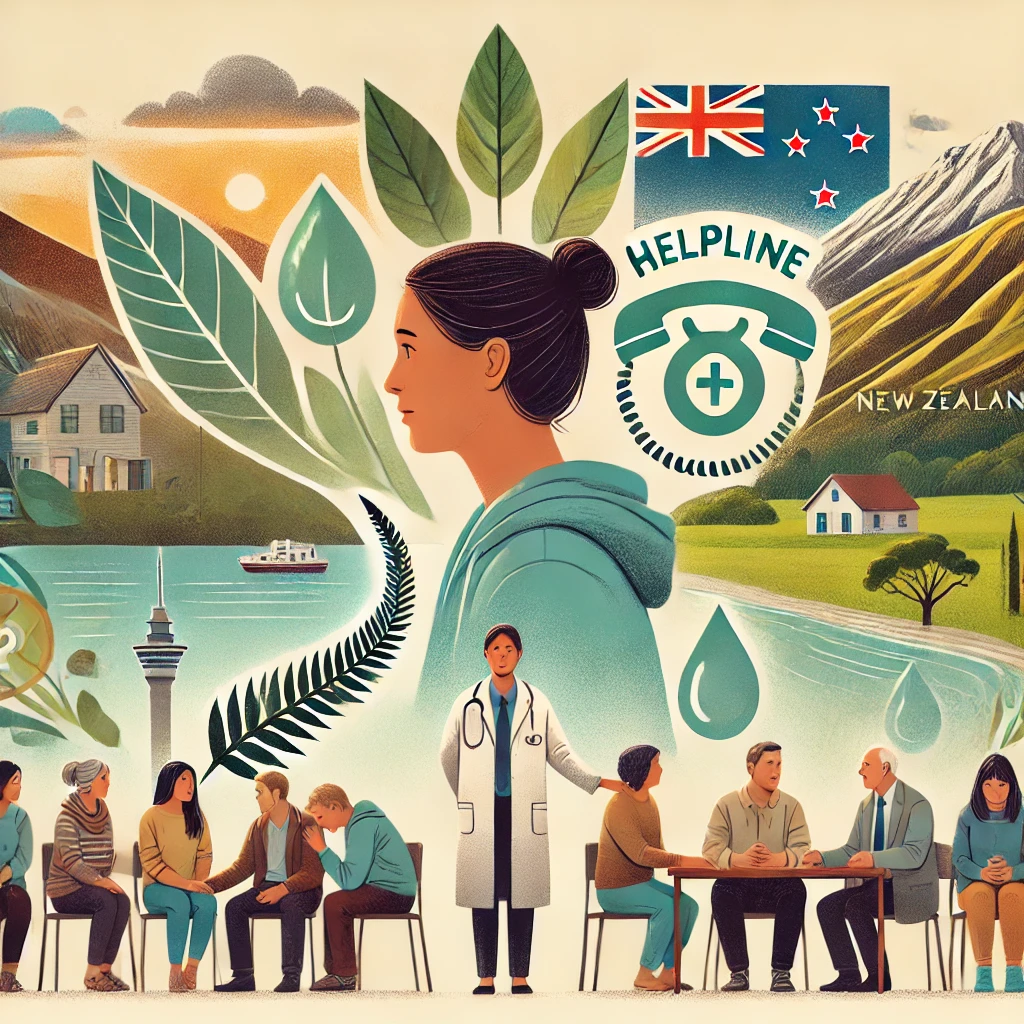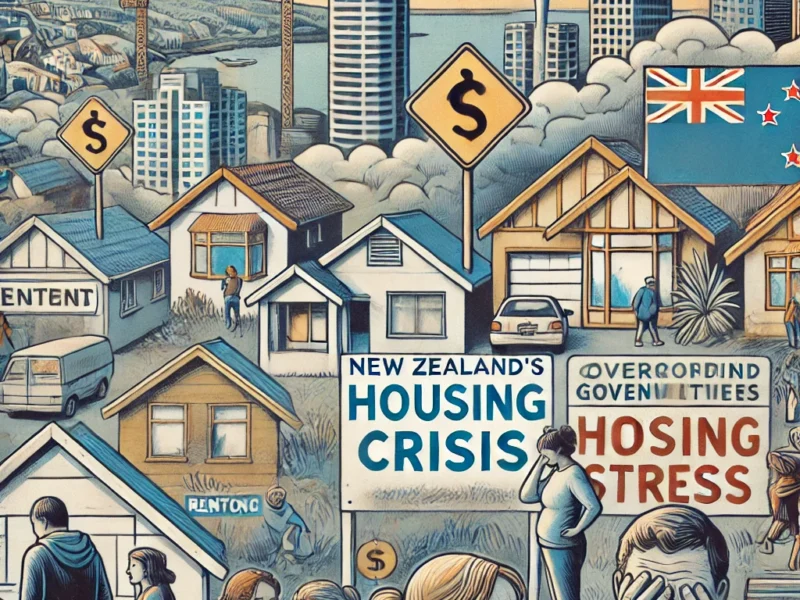New Zealand, like many countries, has been grappling with the economic effects of a global recession. While the nation has historically maintained a stable and resilient economy, several factors have contributed to a slowdown in growth, including the lingering impacts of the COVID-19 pandemic, inflation, and global supply chain disruptions. The recession has triggered widespread discussions on how New Zealand can recover and what measures are being taken to mitigate its effects on businesses and households.
This article explores the causes of the recession, its impact on key sectors, and the government’s efforts to steer the economy back to growth.
Causes of the Recession
Several global and domestic factors have contributed to the current recession in New Zealand:
- Global Supply Chain Disruptions: The COVID-19 pandemic severely disrupted global supply chains, affecting trade and the availability of goods. Shipping delays, shortages of raw materials, and rising costs of imports have contributed to inflationary pressures, making it more expensive for businesses to operate and for consumers to purchase goods.
- Inflation: New Zealand has faced rising inflation, with the Consumer Price Index (CPI) reaching its highest levels in decades. This has been driven by a combination of global factors, such as higher energy prices and supply chain issues, and domestic factors, such as housing market pressures and increased demand for goods and services. The Reserve Bank of New Zealand (RBNZ) has raised interest rates in response, aiming to curb inflation, but this has also increased borrowing costs for businesses and households.
- Rising Cost of Living: The cost of living has surged in New Zealand, making it harder for many households to make ends meet. Food, fuel, and housing prices have skyrocketed, reducing disposable income and consumer spending. With reduced purchasing power, businesses have seen a decline in sales, further exacerbating the recessionary environment.
- Global Economic Slowdown: The global economic downturn, particularly in major trading partners like China, Australia, and the US, has had a knock-on effect on New Zealand’s exports. Reduced demand for goods such as dairy, meat, and timber has weakened the country’s export economy, impacting businesses reliant on international trade.
Impact on Key Sectors
The recession has affected several key sectors in New Zealand:
- Tourism: One of the hardest-hit sectors has been tourism, which is a significant contributor to the economy. Travel restrictions and reduced international tourism during the pandemic have left many tourism operators struggling. Even with the reopening of borders, the sector is still recovering from the long-term effects of the pandemic, with visitor numbers remaining below pre-recession levels.
- Construction: Rising costs of materials and labor shortages have slowed the construction sector, which had previously been booming due to high demand for housing and infrastructure. Many projects have been delayed or canceled due to financing difficulties and escalating costs, putting strain on the industry.
- Retail and Hospitality: Retail businesses and the hospitality industry have also felt the pinch. Higher costs of goods, reduced consumer spending, and increased operational expenses due to inflation have caused many small businesses to close or downsize. Restaurants, cafes, and retail shops have seen a significant drop in foot traffic, forcing some to pivot to online sales or delivery models.
- Agriculture: Agriculture, a cornerstone of New Zealand’s economy, has faced challenges from rising costs of production, including fuel and fertilizer prices. Additionally, international demand for exports has decreased, impacting farmers and producers. However, there are signs of resilience in this sector, with many businesses focusing on innovation and sustainability to navigate the tough economic landscape.
Government Response
The New Zealand government has implemented several measures to cushion the impact of the recession and support recovery:
- Economic Stimulus Packages: The government has rolled out economic stimulus packages to provide financial assistance to businesses and households. These packages include wage subsidies, grants, and low-interest loans to help businesses keep afloat and retain employees. There has also been support for the tourism and hospitality sectors, which were particularly hard-hit by the downturn.
- Infrastructure Investments: To create jobs and stimulate economic growth, the government has invested heavily in infrastructure projects. These projects, which include transport, housing, and energy developments, aim to boost employment and lay the foundation for long-term economic stability. The government hopes that these projects will kickstart growth in construction and other related industries.
- Monetary Policy: The Reserve Bank of New Zealand (RBNZ) has been adjusting interest rates to manage inflation and stabilize the economy. While higher interest rates are intended to curb inflation, they have made borrowing more expensive, affecting businesses and consumers alike. The central bank is carefully balancing its approach to avoid stifling economic recovery while controlling rising prices.
- Support for Innovation and Export Growth: The government is promoting innovation and technological advancement as key drivers of economic recovery. Support for tech startups, green energy projects, and export-oriented businesses has been a focal point of the recovery strategy. By encouraging these sectors to grow, the government aims to reduce reliance on traditional industries and create new opportunities in emerging markets.
Path to Recovery
Despite the challenges, there are several reasons for optimism about New Zealand’s recovery from the recession:
- Resilience in Agriculture and Exports: New Zealand’s agricultural sector has shown resilience in the face of adversity. The country’s primary industries, such as dairy and meat, continue to be in demand globally, and with improved trade conditions, the sector is poised for recovery. Additionally, the government’s push for sustainable farming and green technology in agriculture could open new markets and opportunities for growth.
- Tourism Rebound: As international travel restrictions ease, there is potential for a strong rebound in tourism. New Zealand’s natural beauty and reputation as a safe, eco-friendly destination make it an attractive choice for travelers. If the tourism sector can innovate and adapt to changing market conditions, it could play a key role in driving the country’s recovery.
- Green Energy and Sustainability: The global shift toward clean energy and sustainable practices presents opportunities for New Zealand to lead in green technology and renewable energy investments. The government’s focus on sustainability, combined with the country’s abundant natural resources, positions New Zealand to benefit from the growing demand for eco-friendly solutions.
- Tech and Innovation: The rise of New Zealand’s tech sector provides a pathway for diversifying the economy. Investments in innovation hubs, digital transformation, and high-tech manufacturing could help create new jobs and revenue streams, lessening the country’s reliance on traditional industries and boosting long-term growth.
Conclusion
New Zealand’s current recession poses significant challenges, but with strategic government intervention, innovation, and resilience across key sectors, there are pathways to recovery. As the country focuses on sustainable growth and emerging industries, it has the potential to not only bounce back from the recession but to build a stronger and more diverse economy in the years ahead.
While uncertainty remains, the collective efforts of businesses, communities, and policymakers will be crucial in navigating the road to recovery and securing a stable economic future for New Zealand.
As New Zealand navigates the challenges of the current recession, businesses are also exploring ways to stay resilient, with many turning to digital strategies to maintain a competitive edge. For companies looking to enhance their online presence during these uncertain times, effective digital marketing can be a key driver of growth. Check out these 10 Tips for Effective Digital Marketing to help your business adapt and thrive in the digital landscape.


